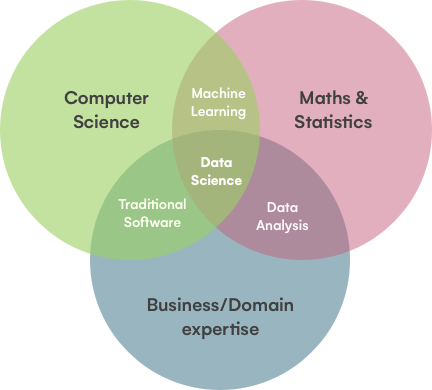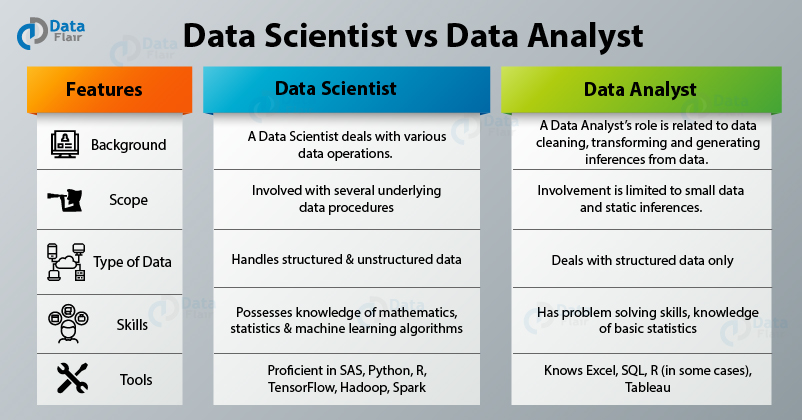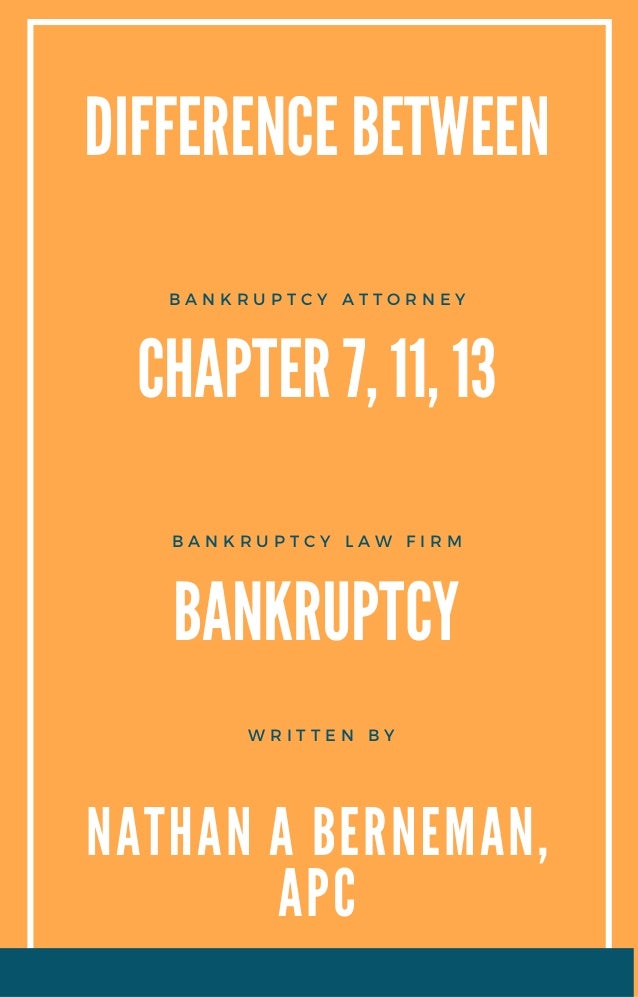So the question is if you need a data scientist. A data scientist does but a data analyst does not.
 Data Science Vs Data Analytics
Data Science Vs Data Analytics
A data scientist works in programming in addition to analyzing numbers while a data analyst is more likely to just analyze data.

Difference between data analyst and data scientist. A data scientist can do the work of data analyst but data analyst cant do the work of data scientist. The data scientist can run further than the data analyst though in terms of their ability to apply statistical methodologies to create complex data products. Todays world runs completely on data and none of todays organizations would survive without data-driven decision making and strategic plans.
A data analyst will solve the questions given by the business while a data scientist will formulate questions whose solutions are likely to. Data analysts organize and sort through data to solve present problems while data scientists leverage their background in computer science math and statistics to predict the future. The data scientist is capable of running the full lap The data scientist is capable of racing the entire lap.
Data Engineer focuses on improving data consumption techniques continuously. Data Analyst vs Data Engineer vs Data Scientist. We hear from a data analyst and a data scientist at Aon to learn more about the differences and similarities between the two roles.
What do data scientists do. Even better you can learn how to code pretty quickly. What do they actually do.
To work as a data scientist youre going to be required to have an extensive knowledge of data mining techniques and machine-learning processes. Data has always been vital to any kind of decision making. If you are preparing for or want to become a data scientist or data analyst do practice on Kaggle.
Data Analyst focuses on. Some of the main differences revolve around automation of the analysis data scientists focus on automating analysis and predictions with algorthims using programming languages like Python whereas data analysts use stationary or past data and in some cases will create predicted scenarios with tools like Tableau and SQL. A data scientist still needs to be able to clean analyze and visualize data just like a data analyst.
Data scientist explores and examines data from multiple disconnected sources whereas a data analyst usually looks at data from a single source like the CRM system. There is some overlap in analytics between data scientist skills and data analyst skills but the main differences are that data scientists typically use programming languages such as Python and R while data analysts may use SQL or Excel to query clean or make sense of data. Lets have a look into the differences between data.
The data engineer gathers and collects the data stores it does batch processing or real-time processing on it and serves it via an API to a data analystscientist who can easily query it. It would be best to have an experienced data analyst who can pick your standard business data an convert it into clear insights. Data Scientist focuses on a futuristic display of data.
However a data scientist will have more depth and expertise in these skills and will also be able to train and optimize machine learning models. An expert who deals with massive quantities of data and creates complex predictive analytics of consumer behaviour. Can a data scientist be a data analyst.
Do they require an advanced degree. The key difference between a data analyst and a data scientist is the required coding experience. A data scientist is someone who can predict the future based on past patterns whereas a data analyst is someone who merely curates meaningful insights from data.
For a data analyst to begin earning around 50000year all they must do is learn SQL and Python. The ability to work with data. A data scientist is responsible for predicting the future based on the past patterns of the data whereas a data analyst is responsible for understanding the past data to gain meaningful insights.
He provides the consolidated Big data to. In companies the data analyst is the requirement to become a data scientist. You could argue that a data analyst does the work of a junior data scientist and many of the skills associated with data scientists can be learned while working as a data analyst.
Usually a data scientist is expected to formulate the questions that will help a business and then proceed in solving them while a data analyst is given questions by the business team to pursue a solution with that guidance. Data analyst vs. The short answer is definitely No.

/what-is-chapter-7-bankruptcy-316202color-355f125a28264491a0cac1313e2c914b.jpg)
